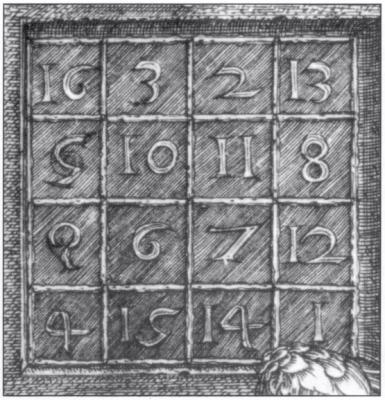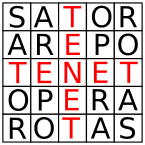... newer stories
Dienstag, 21. Dezember 2010
Extra Jahr für das LHC?
klauslange,17:31h
Die bislang gezeigten Ergebnisse des LHC scheinen so vielversprechend zu sein, dass das geplante Ende der ersten Messkampagne Ende 2011 um ein Jahr verschoben wird. So jedenfalls der Vorschlag einiger Forschergruppen, wie Nature berichtet:
http://www.nature.com/news/2010/101210/full/news.2010.667.html?s=news_rss&utm_source=feedburner&utm_medium=feed&utm_campaign=Feed%3A+news%2Frss%2Fmost_recent+%28NatureNews+-+Most+recent+articles%29
If the plan is implemented, the Large Hadron Collider (LHC), located at CERN, near Geneva, Switzerland, will run until the end of 2012 — rather than 2011 — before entering a year-long shutdown for a major upgrade. Preparations for the extended run, which would see the 27-kilometre circular collider operating over three continuous years, are being finalized and are likely to be agreed to by CERN's management and council in January.
The decision comes with the belief that new discoveries may be just around the corner. "It would be a shame to stop," says Steve Myers, who is responsible for maintaining and upgrading the accelerator.
...
Initially, there were doubts about whether the LHC would be able to find the Higgs at the machine's current energies. Since a major accident in 2008, the LHC has been running at half its design energy. CERN managers had planned a 15-month pause in data collecting at the start of 2012, which would allow the machine to be upgraded to full power.
But now there is a growing consensus that the LHC will be able to cover most of the territory in which a standard Higgs particle might be found, even if it isn't upgraded. The best guess of most physicists is that the Higgs weighs somewhere between 114 and 600 gigaelectronvolts (109 electronvolts), according to Sergio Bertolucci, CERN's director for research and computing. Its mass will determine how the particle decays — and how easily it can be detected.
Paradoxically, a heavier Higgs might be easier to spot, Bertolucci says. That's because the heavy Higgs is likely to decay into pairs of rare, heavy particles known as W and Z bosons. Pairs of Ws or Zs would stand out sharply against the other particles created in LHC collisions. If the Higgs were lighter, its signature would blend into the background, making it much harder to detect and requiring physicists to amass and filter through data from months of collisions...
But keeping the machine running for an extra year will have consequences. The delicate alignment of the LHC's superconducting magnets could suffer, requiring extra maintenance, says Myers. And additional computing resources will have to be found to handle the flood of extra data produced by the detectors.
Managers recognize the difficulties, but Bertolucci says they have strong incentives to extend the run: "If we stop the machine with 3,000 people apiece in the experiments waiting for data, there is no way we could get home at night without having slashed tyres on our cars."
The decision will be discussed at a meeting in the French town of Chamonix in late January, and should be finalized shortly after.
http://www.nature.com/news/2010/101210/full/news.2010.667.html?s=news_rss&utm_source=feedburner&utm_medium=feed&utm_campaign=Feed%3A+news%2Frss%2Fmost_recent+%28NatureNews+-+Most+recent+articles%29
If the plan is implemented, the Large Hadron Collider (LHC), located at CERN, near Geneva, Switzerland, will run until the end of 2012 — rather than 2011 — before entering a year-long shutdown for a major upgrade. Preparations for the extended run, which would see the 27-kilometre circular collider operating over three continuous years, are being finalized and are likely to be agreed to by CERN's management and council in January.
The decision comes with the belief that new discoveries may be just around the corner. "It would be a shame to stop," says Steve Myers, who is responsible for maintaining and upgrading the accelerator.
...
Initially, there were doubts about whether the LHC would be able to find the Higgs at the machine's current energies. Since a major accident in 2008, the LHC has been running at half its design energy. CERN managers had planned a 15-month pause in data collecting at the start of 2012, which would allow the machine to be upgraded to full power.
But now there is a growing consensus that the LHC will be able to cover most of the territory in which a standard Higgs particle might be found, even if it isn't upgraded. The best guess of most physicists is that the Higgs weighs somewhere between 114 and 600 gigaelectronvolts (109 electronvolts), according to Sergio Bertolucci, CERN's director for research and computing. Its mass will determine how the particle decays — and how easily it can be detected.
Paradoxically, a heavier Higgs might be easier to spot, Bertolucci says. That's because the heavy Higgs is likely to decay into pairs of rare, heavy particles known as W and Z bosons. Pairs of Ws or Zs would stand out sharply against the other particles created in LHC collisions. If the Higgs were lighter, its signature would blend into the background, making it much harder to detect and requiring physicists to amass and filter through data from months of collisions...
But keeping the machine running for an extra year will have consequences. The delicate alignment of the LHC's superconducting magnets could suffer, requiring extra maintenance, says Myers. And additional computing resources will have to be found to handle the flood of extra data produced by the detectors.
Managers recognize the difficulties, but Bertolucci says they have strong incentives to extend the run: "If we stop the machine with 3,000 people apiece in the experiments waiting for data, there is no way we could get home at night without having slashed tyres on our cars."
The decision will be discussed at a meeting in the French town of Chamonix in late January, and should be finalized shortly after.
... link (0 Kommentare) ... comment
... older stories

